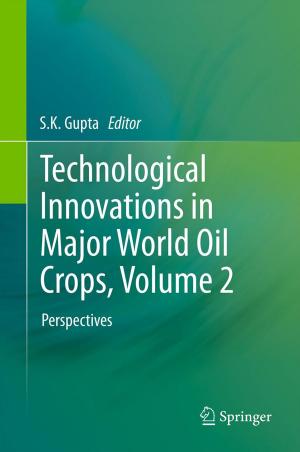Integrating Ecology and Poverty Reduction
The Application of Ecology in Development Solutions
Nonfiction, Science & Nature, Technology, Environmental, Science, Biological Sciences, Environmental Science, Nature| Author: | ISBN: | 9781461401865 | |
| Publisher: | Springer New York | Publication: | November 25, 2011 |
| Imprint: | Springer | Language: | English |
| Author: | |
| ISBN: | 9781461401865 |
| Publisher: | Springer New York |
| Publication: | November 25, 2011 |
| Imprint: | Springer |
| Language: | English |
The second volume of this series, Integrating Ecology into Global Poverty Reduction Efforts: Opportunities and solutions, builds upon the first volume, Integrating Ecology into Global Poverty Reduction Efforts: The ecological dimensions to poverty, by exploring the way in which ecological science and tools can be applied to address major development challenges associated with rural poverty. In volume 2, we explore how ecological principles and practices can be integrated, conceptually and practically, into social, economic, and political norms and processes to positively influence poverty and the environment upon which humans depend. Specifically, these chapters explore how ecological science, approaches and considerations can be leveraged to enhance the positive impacts of education, gender relations, demographics, markets and governance on poverty reduction. As the final chapter on “The future and evolving role of ecological science” points out, sustainable development must be build upon an ecological foundation if it is to be realized. The chapters in this volume illustrate how traditional paradigms and forces guiding development can be steered along more sustainable trajectories by utilizing ecological science to inform project planning, policy development, market development and decision making.
The second volume of this series, Integrating Ecology into Global Poverty Reduction Efforts: Opportunities and solutions, builds upon the first volume, Integrating Ecology into Global Poverty Reduction Efforts: The ecological dimensions to poverty, by exploring the way in which ecological science and tools can be applied to address major development challenges associated with rural poverty. In volume 2, we explore how ecological principles and practices can be integrated, conceptually and practically, into social, economic, and political norms and processes to positively influence poverty and the environment upon which humans depend. Specifically, these chapters explore how ecological science, approaches and considerations can be leveraged to enhance the positive impacts of education, gender relations, demographics, markets and governance on poverty reduction. As the final chapter on “The future and evolving role of ecological science” points out, sustainable development must be build upon an ecological foundation if it is to be realized. The chapters in this volume illustrate how traditional paradigms and forces guiding development can be steered along more sustainable trajectories by utilizing ecological science to inform project planning, policy development, market development and decision making.















